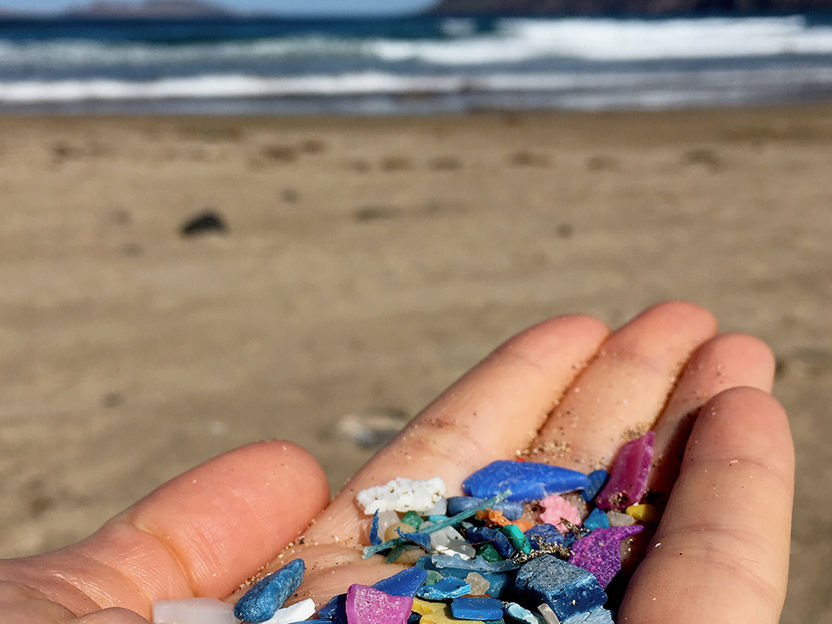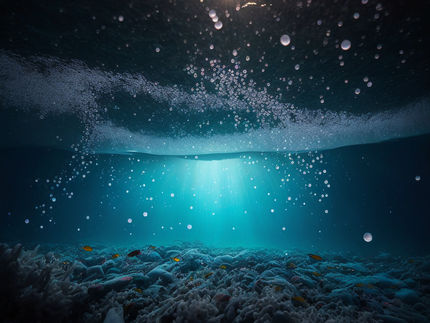No chance for environment-relieving plastic decomposition by bacteria
Burst Hope
Advertisement
No, they won’t help us with this particular environmental problem: bacteria are definitely not able to decompose plastic released into marine environments, and they are unlikely to acquire this ability through evolution. This is the conclusion reached by microbiologists Sonja Oberbeckmann and Matthias Labrenz from the Leibniz Institute for Baltic Sea Research Warnemünde (IOW) in a comprehensive review study concerning biofilms on microplastics.

Depressing "hand selfie": Marine pollution with plastics is omnipresent, be it at deserted at dream beaches like here on Lanzarote or in even more remote regions like the Arctic.
IOW / F. Klaeger
Our waters are polluted with microplastics. Whether it’s fibres from fleece pullovers, plastic pellets from toothpaste or disintegrating plastic bags and bottles: All these small plastic particles eventually end up in the ocean, with unforeseeable consequences for the marine environment. Since these mini-particles are also colonised by bacteria, the question arose quite early as to whether specific microbes might accumulate on microplastics. Such specialists might even be able to degrade the seemingly indestructible material at some point and thus rid the oceans of this contamination in the long term.
The IOW microbiologists Sonja Oberbeckmann and Matthias Labrenz, who have been working on this question for several years, have now summarised and re-evaluated their own results, as well as those of several hundred studies published worldwide. They come to the conclusion that the interactions between bacteria and microplastic particles in marine habitats are actually quite limited. Although bacteria colonise these particles, they do not degrade them because the required energy would be far too high. Moreover, microplastics are so difficult for bacteria to degrade that they are highly unlikely to develop a plastic degradation mechanism under the marine conditions in the future. “This means that we remain on our own dealing with the challenge of getting rid of microplastics. Since we cannot remove it from our oceans, it will continue to accumulate there. Ultimately, this could turn into a ‘chronic disease’ of the affected ecosystems,” Oberbeckmann and Labrenz comment on this particular result of their study. The two microbiologists are therefore calling for proactive, consistent measures to protect the oceans from plastic waste, such as a significant and timely reduction of plastic-made wealth products (from plastic bags to plastic toys) and recycling systems, which fully realise their potential and can be used cost-effectively worldwide.
However, the extensive review also provided some good news: The frequent assumption that pathogenic bacteria might specifically accumulate on microplastics, and thus would be able to spread rapidly and widely, could not be substantiated. Microorganisms growing on microplastics usually belong to groups that are typical colonisers of particles floating in the sea and do not distinguish between natural and artificial surfaces. Among them are indeed also harmful bacteria but they do not occur more frequently than on other particles, such as wood or other organic substances. In this respect, microplastics do not pose an increased risk in marine habitats.































































